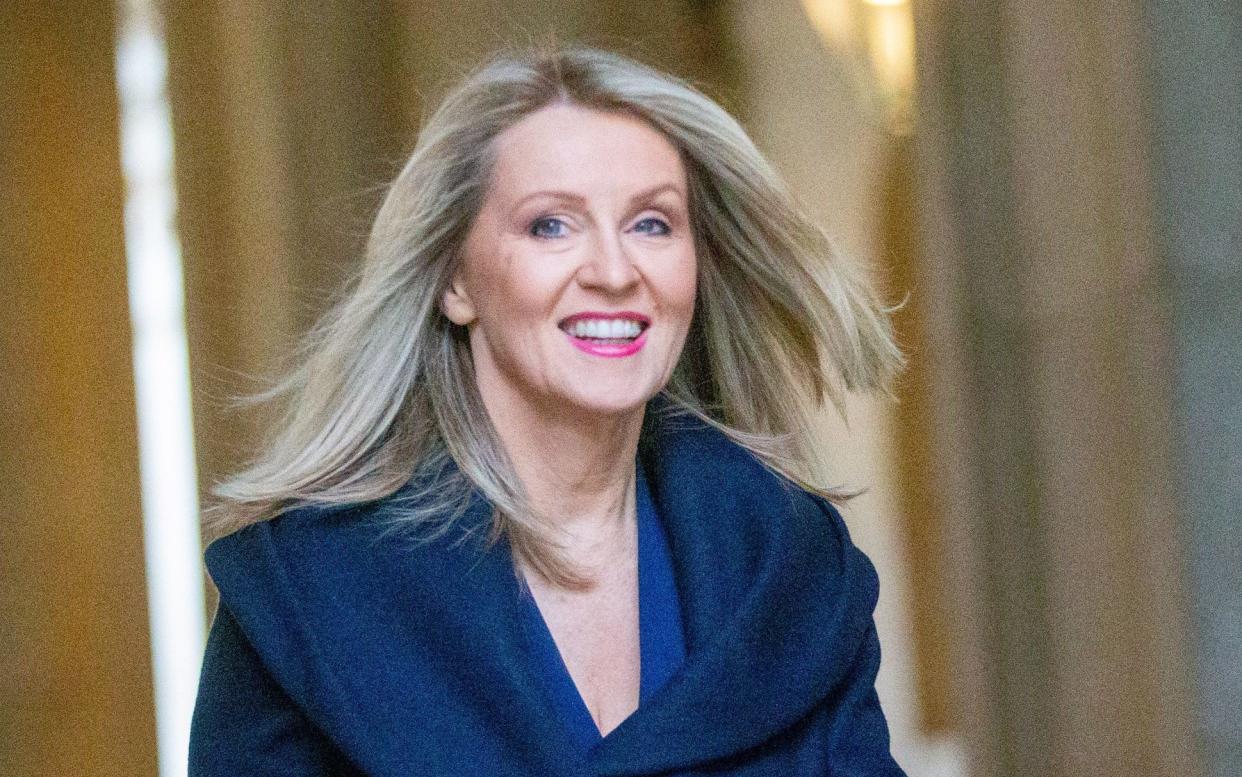Civil service diversity jobs are superficial, patronising and wasting taxpayers’ money

- Oops!Something went wrong.Please try again later.
It’s hard to keep a straight face when reading the words “common sense minister” in a headline. Are we really at a point where cabinet ministers are needed to represent and enforce basic, positive, human attributes? Have we lost sight of those attributes to such an extent that we need a physical embodiment, Mr. Men-style, for things like “logic”, “integrity”, and “resilience”?
The answer, sadly, is a resounding “yes”, and yesterday “common sense minister” Esther McVey took a major step in delivering on the promise she made six months ago – when the veteran Tory MP was given the unofficial title in Rishi Sunak’s cabinet reshuffle and vowed to “ensure all parts of the public sector embrace common sense instead of political correctness.” Yesterday, McVey took aim at the flabbiest, feeblest and least common-sensical of those public sectors: the civil service.
Over the past decade the supposedly impartial body that describes its core values as “honesty, integrity, impartiality and objectivity” and its core aims as “setting direction”, “engaging people” and “delivering results” has become a shell of its former self, so focused on empty woke ideologies and evangelism that it seems to have forgotten who it is there to serve, let alone the results it exists to deliver.
Enough. In her speech on Monday, McVey announced a ban on the civil service jobs dedicated to diversity, equality and inclusion (DEI) and an end to the money wasted on “woke hobby horses”, warning that the public sector must not become a “pointless job creation scheme for the politically correct.”
That ship has sailed – although better late than never and we can still turn it around. We’re talking about a sector that employs an estimated 10,000 diversity officials with an average salary of £42,000, putting the annual cost of those evangelicals alone at £557 million. But if you were looking to join, say, a “Menopause Network”, a “Vegan and Vegetarian Network”, or a “Cross-Government Introverts Network”, the civil service was the place to go.
If you wanted to spend your days immersed in “gender pay audits”, “unconscious bias training courses” and “equality impact assessments”, you’d come to the right place. And how gratifying it must be to have such lofty focal points? After all, who wants to get bogged down with benefits and pensions or the running of employment services and prisons when you could be spending public money on defending the rights of vegan chocolate and building “a supportive community” that helps bring introverts out of themselves?
Detailing how new guidance on third-party expenditure also means that officials will be banned from spending their department’s budget on external DEI campaign groups, experts or consultants, McVey made two crucially important points. First, that the benefits of these endless DEI campaigns, programmes and incentives are “unproven to say the least”. Which hasn’t mattered until now, because it’s all about optics. And second, that “diversity in the Civil Service should never just be measured in terms of race and sex.” That it’s not enough, again, to be seen to do the right thing, if you’re not actually doing the right thing.
This goes for every public sector. Because if you’re filling positions according to a quota defined by a person’s race or sex, you’re ironically proving yourself to be guilty of every ism. When “it should also be about background and differences of opinion and perspective,” says McVey, adding: “Above all it should be about merit.”
A classic example of where this patronising and reductive brand of groupthink gets us is the reaction to Zadie Smith’s New Yorker essay, published last week. In it, the writer praised the “brave students” demanding Israel ends its military attacks on Gaza at Columbia University but made the grievous error of stating that Jewish students should not be made to feel unsafe on university campuses. Cue the Twitter/X backlash, much of which either covertly or overtly seems to be saying that Smith had, as one Times columnist put it yesterday, “betrayed her racial identity.” By saying her opinions are only valid if they cohere with those of other people “like her”, she is being reduced from an intelligent voice to an emblem of her race.
The parallels are clear. Where diversity of any form becomes tokenistic, where it takes the focus off the matter at hand and places it firmly on ideological groupthink, it has zero value. It’s a waste of breath, space, energy – and in the case of the civil service, hard-earned taxpayers’ cash. Time to bring back common sense. I think we’ll all find that a little goes a long way.

